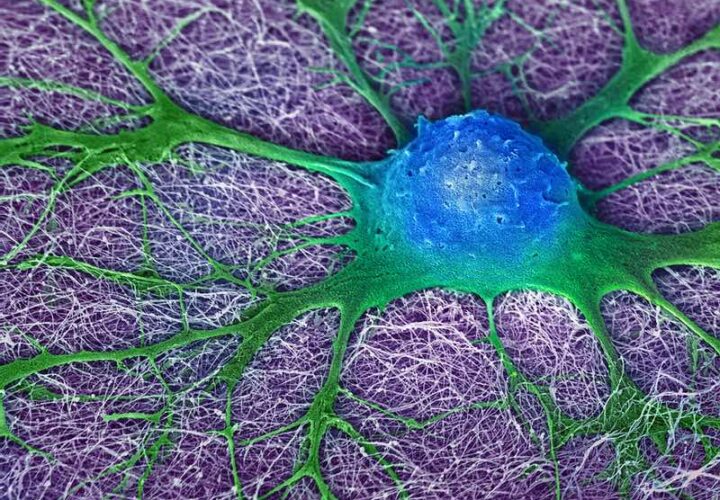Scientists are exploring the connection between Alzheimer's and the brain's ability to regenerate neurons.
If you scrape your knee or break a bone, new cells repair the damage before you even know it. Other organs in the body are even better at regrowing themselves: The cells lining the gut regenerate every three to four days. In contrast, the brain has a limited capacity to regenerate and repair itself.
Even when brain cells begin to die off in Alzheimer’s or other types of dementia, there aren’t nearly enough new cells dividing and surviving to repair the brain.
Up until the mid-20th century, scientists believed that no new brain cells at all formed over the lifetime. But in the 1960s and 1970s, scientists discovered dividing cells in the brain through a process called neurogenesis. The rate of formation for new neuronal cells decreases with age. Newborn cells emerge near the hippocampus, a region of the brain important for memory — one affected early on in Alzheimer’s.
If brain cells are dying over the course of Alzheimer’s disease, could stimulating the production of new cells solve the problem?
A 2019 study found that among people with Alzheimer’s, those with more neurogenesis — more new brain cells being formed — had less cognitive impairment. These findings came with an exciting realization: Increasing the brain’s ability to regenerate brain cells could stave off cognitive decline and dementia.
The previous year, another study found that stimulating the production and survival of new neurons in mouse models of Alzheimer’s did in fact improve cognition. The researchers found that brain-derived neurotrophic factor — a signaling molecule that helps neurons grow — even mimicked the effects of exercise on cognition.
One of the researchers involved in this work, María Llorens-Martín at the Autonomous University of Madrid, believes neurogenesis might hold the key to figuring out what causes Alzheimer’s and how to diagnose it early.
“What is failing in the environment that is making these neurons die prematurely or making it very difficult for them to get connected appropriately?” she said in an interview with The Scientist.
Although this work raises more questions than it answers, harnessing the brain’s own regenerative ability could stave off or even halt the progression of Alzheimer’s.




I support your mission. Since 2013 I have been trying to decrease my husbands decline. Not find support in conventional neurology-this includes the Mayo Clinic where my husband had been a patient for years- I turned to alternative therapies. Using intranasal insulin, PEMF, red light-blue light therapy through a helmet. exercise and more. I have been mocked by the neurologist but are disappointed that there are no neurologists that can think out of the box. There is reseaRCH THAT INTTRANASAL STEM CELLTHERAPY CAN ACCELERATE NEUROGENESIS;however, the ir no accelerated effort to make this available to a patient. Both the FDA and the Pharma industry, prefer to see a person die slowly in the most excruciating way, destroying his and his family’s life.
I’m so sorry that you are going through this. Most scientific breakthroughs are accomplished by people who do not specialize in that field because they aren’t burdened by prejudgments made by prior “experts”. My best to you and your family.
MOTHER AND 2 SIBS HAVE GONE WITH A DEMENTIA, NOW AT A SIMILAR AGE, AND 9 YEARS AFTER A BRAIN TRAUMA AND OP, I FIGHT TO KEEP MY BRAIN MOBILE AND REFRESHED. SEEMS TO WORK. I’M OPEN TO IDEAS. KEEP UP THE GOOD WORK.
Is there effective treatment for Dementia. I am suffering from Dementia for about a year. I am running in 80